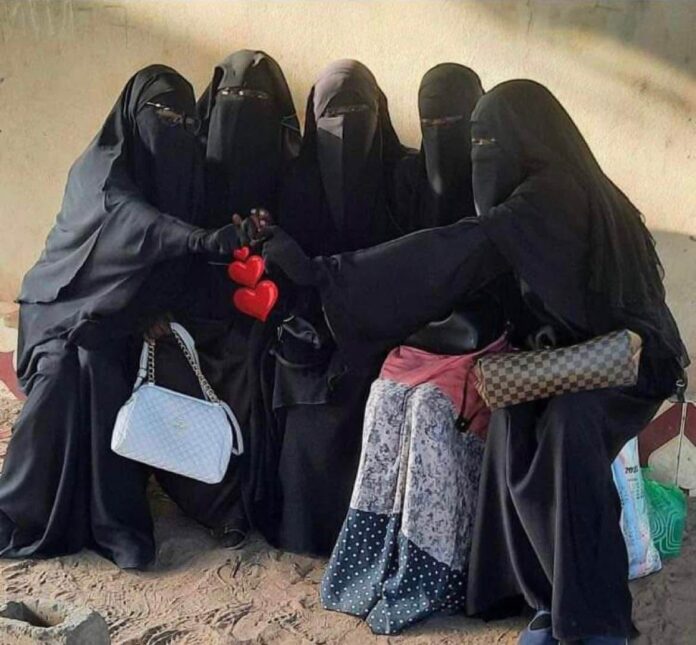By Aja Beyai and Al-Amin Kijera
The Gambia College School of Nursing and Midwifery is under scrutiny following allegations that some students were compelled to remove face masks, issued warning letters, and faced disciplinary actions by a senior administrator despite the college’s assertion that no official ban on face masks exists.
While the college administration denies enforcing a face mask ban, documents, and firsthand accounts indicate that students have been disciplined for wearing masks in classrooms, laboratories, and on campus grounds. Some students have chosen to remain at home, awaiting further communications from the college, while others express concerns about potential academic repercussions for speaking out.
The situation has raised questions regarding inconsistent policy enforcement, potential administrative overreach, and safeguarding of student rights, particularly regarding personal expression, religious accommodations, and due process in disciplinary actions.
The college has initiated an internal investigation in response to the controversy, though specific details about this process remain unclear.
Conflicting statements have emerged from the college administration.
The College Public Relations Officer (PRO), Bubacarr Sambou, told Alkamba Times that the institution never instituted a face mask ban, clarifying that students were only required to remove masks inside classrooms for identification purposes. “The college will never make any ruling to prohibit anyone from practicing their religion. We have mosques and churches across our campuses,” Sambou asserted.
Sambou acknowledged the lack of an official policy change but expressed uncertainty regarding the enforcement of these actions.
“I am not sure why the policy changed, but in fact, it would be double standards if Mrs. Bah (The Head of the School of Nursing & Midwifery) told them to substitute face masks with niqabs, even after stating that we want to know who we are teaching,” Sambou stated.
Despite the absence of a formal written policy, the college is drafting new regulations as part of its transition into a university. However, it remains unclear whether student input will be incorporated into the development of these new policies or if they will be determined solely by the administration or council responsible. There are concerns that the upcoming regulations may formally ban both niqabs and face masks in classroom settings.
The Gambia College School of Nursing and Midwifery is developing eight new policies, as Bubacarr Sambou, the Public Relations Officer (PRO), highlighted.
He mentioned that many existing codes of conduct have existed since the institution’s inception, and the college is responding to emerging societal issues. However, there are concerns that the new policies may formalize restrictions on face coverings, potentially exacerbating current student grievances rather than addressing them.
Students have raised allegations of harassment and arbitrary punishment related to the enforcement of face mask removal. While the administration denies having an official ban, students report experiences of confiscation, intimidation, and disciplinary actions.
The PRO stated that students were asked to remove masks for identification purposes and emphasized that no formal disciplinary measures were imposed solely for wearing masks. However, student accounts suggest a different reality.
KJ, not her real name because of fear, recounted an incident where her mask was confiscated, and she was told to leave school if she could not comply.
Another Student, AB, shared a similar experience, stating that she now carries extra masks in anticipation of further confiscations.
Additionally, the Islamic Students Association of the School of Nursing and Midwifery (ISAD) reported that at least six students received warning letters on January 16, 2025, for non-compliance with the uniform code, with more letters issued on January 23, 2025. These letters stipulated that affected students must return with their parents to be allowed back to class. Due to these developments, some students remain unsure about their ability to continue their education.
According to the Islamic Students Association of the School of Nursing and Midwifery (ISAD), Mrs. Kumba Khan has been previously warned twice by the Ministry of Higher Education, Research, Science, and Technology (MoHERST) for similar issues related to her conduct.
However, The college administration claims that it was unaware of these warnings. The Public Relations Officer (PRO) stated, “We were never aware of her hostile nature towards students and lecturers, but we will not leave this matter without investigation.”
Regarding communication, the administration has restricted direct access to key figures such as Mrs. Khan and Mrs. Bah. When TAT sought clarification regarding the allegations, the administration stated that they represent both individuals and that official responses must come through their office.
The School of Nursing and Midwifery Students Association (SONAMSA) attempted to mediate the situation. Representatives from SONAMSA met with the Head of School to clarify the restrictions and negotiate terms, but their request was denied without an explanation.
Subsequently, SONAMSA apologized to Mrs. Khan on behalf of the niqabi students, hoping to secure permission for them to continue wearing face masks. However, Mrs. Khan rejected their appeal, citing concerns related to identification and adherence to dress code rules.
According to the ISAD report, Mrs. Kumba Khan defended her actions by stating several points regarding the dress code and student interactions. She emphasized that class coordinators should be able to recognize students by their faces and names and that patients have the right to observe a nurse’s facial expressions.
Mrs. Khan noted that while the dress code permits veils, it specifies that nothing should cover the face. She also mentioned that screening during admission is intended to ensure that students do not pose a risk of infectious diseases.
Additionally, it was reported that she allowed limited exceptions for students during disease outbreaks, in dusty environments, or those undergoing tuberculosis treatment.
The college has announced an internal investigation into the situation, though specific details about the process have not been disclosed.
The Public Relations Officer (PRO) stated that he, the registrar, and other unspecified individuals would be involved in the investigation. He will engage with school authorities before the findings are submitted to the council for a final decision.
The PRO indicated that the council will determine the appropriate course of action if any individuals are found guilty of the allegations.
Amidst the investigation, some students, particularly those who faced disciplinary measures, have expressed uncertainty regarding their academic standing. One affected student, who requested anonymity, voiced concerns about the potential long-term impact on their records due to the face mask issue, stating, “We are worried that our records will be permanently affected for simply wearing a face mask. No one is telling us what will happen next.”
The incident involving Mrs. Khan and the dress code controversy has prompted broader discussions regarding institutional transparency, administrative authority, and student rights. Debates surrounding dress codes and face coverings have emerged globally, particularly in the contexts of medical and educational institutions.
As the investigation progresses, student organizations and educational authorities may exert increased pressure on the institution to be more transparent in formulating policies.
It remains uncertain whether the Ministry of Higher Education, Research, Science, and Technology (MoHERST) or other governing bodies will take action in this situation. Currently, students affected by the incident are uncertain about their academic standing.






